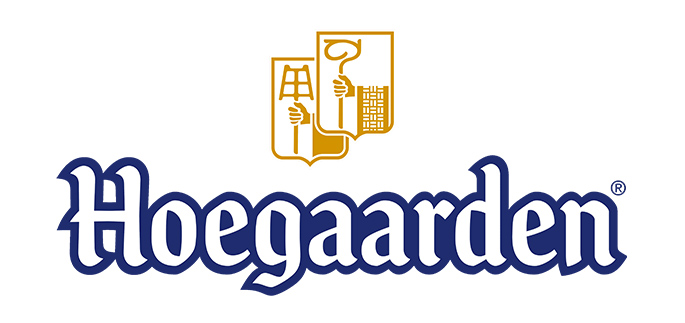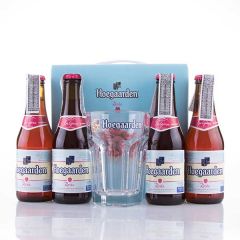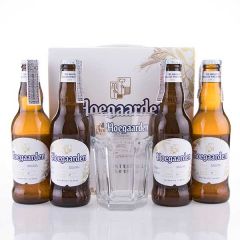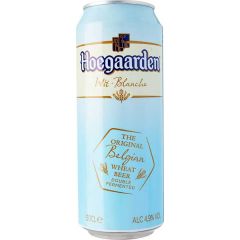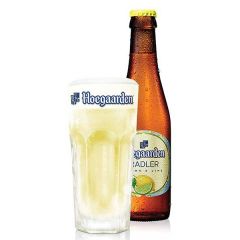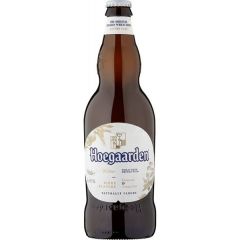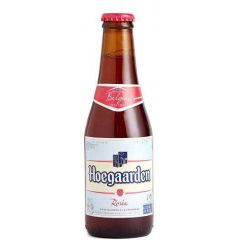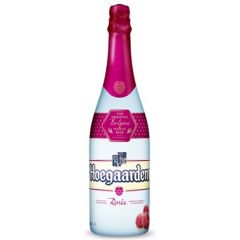Welcome to the club | New member? Subscribe and get special offer
Hoegaarden Witbier Bottle 330ml x 24
ประเทศ (Country)
Belgium
ประเภท (Beer Type)
Wheat
ขนาดบรรจุ (bottle size)
330 ml
แอลกอฮอล์ (Alcohol)
4.9%
รายละเอียดสินค้า
Hoegaarden (ฮูการ์เด้น) มีส่วนผสมของเปลือกส้มตากแห้ง (Curacao Orange Peel) เมล็ดผักชี ข้าวสาลี มอล์ท และน้ำแร่ธรรมชาติ รวมถึงมีกระบวนการหมักที่แตกต่างคือผ่านการบ่มหมักถึงสองครั้ง โดยไม่ผ่านการกรองจนกระทั่งบรรจุลงถังหรือขวด วิธีการรินการการเสริฟ์ที่แตกต่าง โดยเริ่มรินเบียร์ลงตรงมุมแก้วประมาณ 2 ใน 3 ของขวด หลังจากนั้นให้หยุดและหมุนขวดเพื่อให้เกิดการผสมผสานของส่วนผสมข้างต้นทำให้ได้รูปและรสที่เหมาะสม แล้วค่อยรินเบียร์ที่เหลือ
เนื้อหาสินค้า
Early and recent history
500 years of hard work went into making this beer that features the aroma of orange peel, coriander and herbs that the merry monks imported from sunny Curacao. Speaking of which: pouring Hoegaarden is just like letting the sun fall into your glass: light yellow and naturally murky. And the soft foam adds a cloudy finish. And then there’s the soft taste, light and slightly sweet and sour and with subtle citrus notes… ah, just go ahead and taste it instead of reading about it!
The village of Hoegaarden had been known for its witbieren (white beers) since the Middle Ages. In the nineteenth century, the village had thirteen breweries and 9 distilleries; however, in 1957, the last local witbier brewery, Tomsin, closed its doors. Pierre Celis, a milkman who had grown up next to the brewery and sometimes helped with brewing, decided some ten years later to try to revive the style. He started a new brewery, called de Sluis, in his hay loft.
Celis used the traditional ingredients of water, yeast, wheat, hops, coriander and dried Curaçao orange peel known as Laraha. With demand for the product continuing to grow, Celis bought, in the 1980s, Hougardia, a former lemonade factory to expand his brewing operations.
After a fire in 1985, several brewers offered their help — as is traditional in Belgium. One of these was the largest brewer in the country, called Interbrew (after a merger with AmBev, renamedInBev). Interbrew lent money for the purchase of other buildings to rebuild the brewery. Over time, Celis felt very strongly that the company used the loan to pressure him to change the recipe to make the beer more "mass market".
แบรนด์


